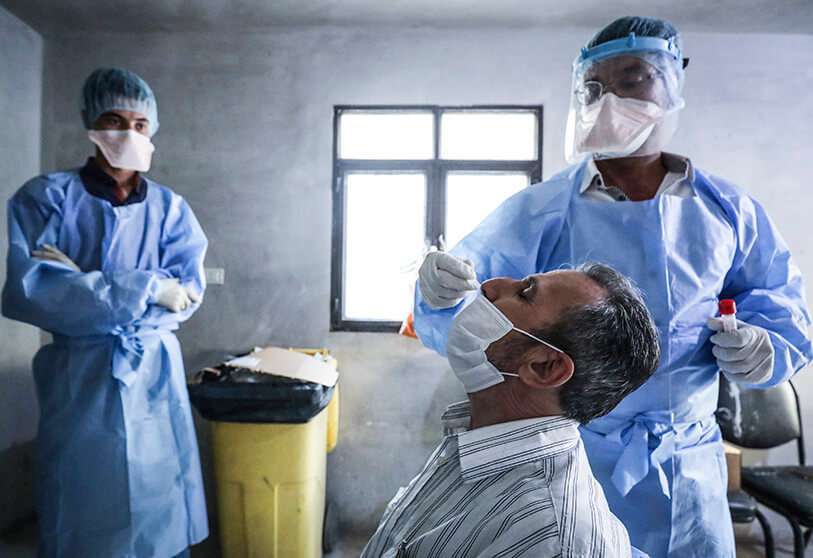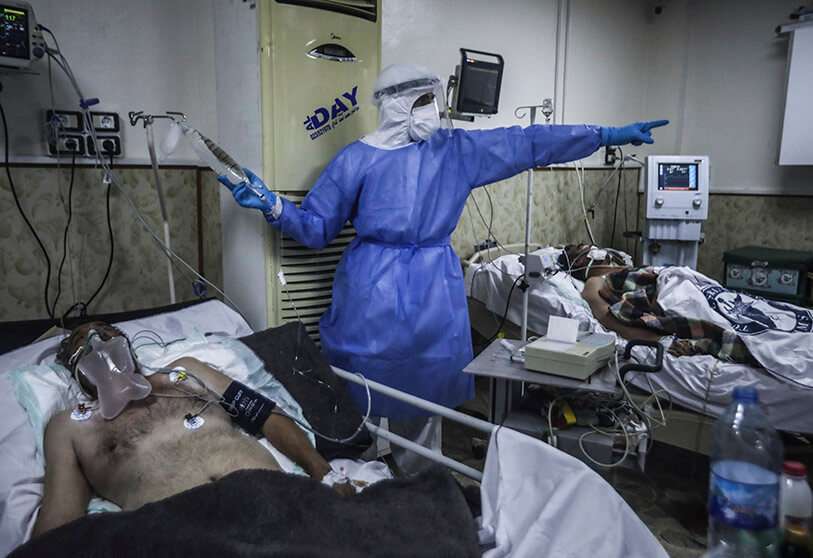Syria to start its vaccination plan in April despite difficulties due to conflict

Syria is still in the midst of a conflict that has been raging for more than ten years, forcing more than half of the population to flee their homes. According to the United Nations (UN), 6.5 million Syrians have become refugees, 6 million have been internally displaced and more than 13 million people are in need of protection.
To an already complex situation has been added the pandemic, which has not discriminated between countries, sweeping the world and leaving millions dead from the Coronavirus. Unfortunately, however, the distribution of vaccines is unevenly distributed between rich and so-called "poor" countries. Syria, a war-torn country suffering from international financial sanctions, cannot afford the cost of vaccination.
In principle, medicines are exempt from sanctions, but UN sources explain that sanctions have left Damascus without much financial leverage to negotiate supplies, and have slowed down the process by creating additional legal risks.
As a result, the Arab country, among others, has had to turn to the COVAX mechanism, a global initiative that aims to ensure that all countries have rapid and equitable access to COVID-19 vaccines. The World Health Organisation (WHO) has initiated the implementation of this mechanism and has deployed teams throughout Syria to start the vaccination programme.

The difficulties are manifold as the country is still at war, divided into territories controlled by different actors. The vaccination programme, which is scheduled to begin in April, is intended to be implemented in both government-controlled areas and in territory outside state control.
Most of Syria's population lives in areas now under government control, yet rebels still control parts of the northwest and a Kurdish-led administration controls much of the northeast. In addition, about a quarter of the population inside Syria is displaced, many in camps, where the spread of the virus is very high.
Akjemal Magtymova, a doctor and WHO representative in Damascus, said the COVAX programme plans to immunise 5 million Syrians, 20 per cent of the population across the country. "We are preparing our vaccine deployment plan with the ministry of health to make sure the programme is going well," Magtymova said, adding that the priority is to vaccinate high-risk health workers, social workers and the most vulnerable first.
"I am very hopeful that it will (start) in April, but it could take even longer depending on so many factors," Magtymova told Reuters in a telephone interview from Damascus.

Fears have grown in recent months about the collapse of Syria's health system in light of a rising number of Coronavirus cases, especially among medical staff. Several international organisations have criticised the Syrian authorities for failing to provide the necessary protection for medical staff working on the frontline against COVID-19 in a country already weakened by war.
The measures taken by the Syrian government to combat the virus, in particular the closure of shops, restaurants and tourist facilities, and the suspension of the internal and external transport sector, have greatly exacerbated the poverty of Syrians, many of whom live below the poverty line and tens of thousands of whom have lost their jobs. A situation that is becoming unsustainable in a country now entering its eleventh year of conflict and with no prospect of a longed-for end.







